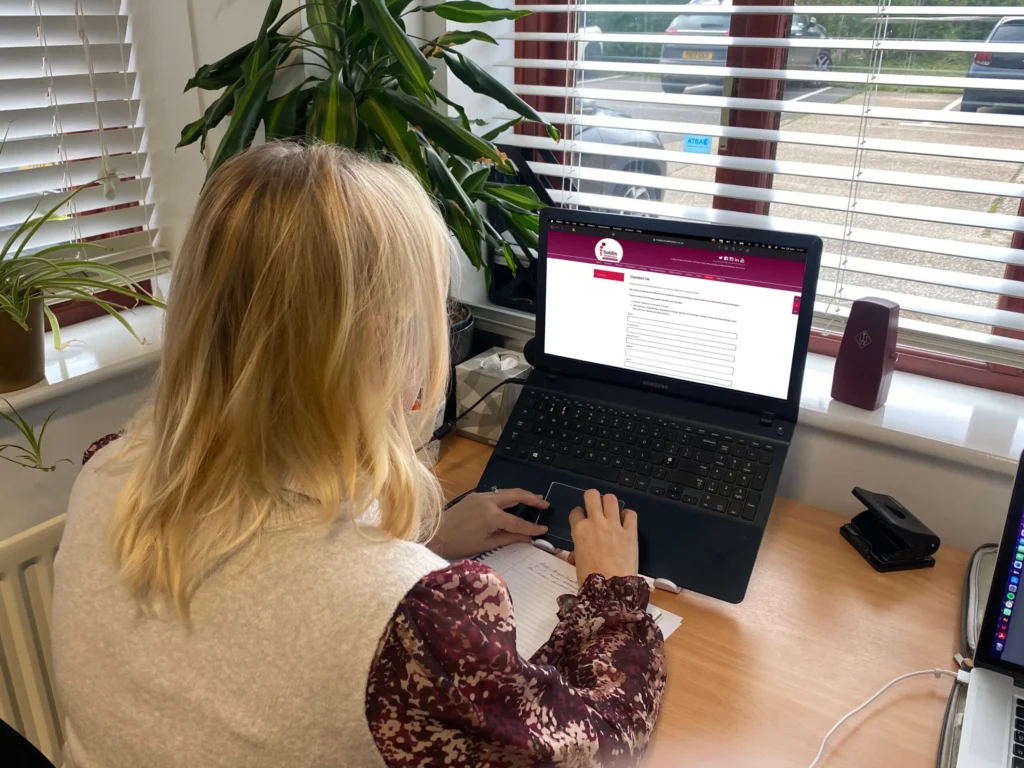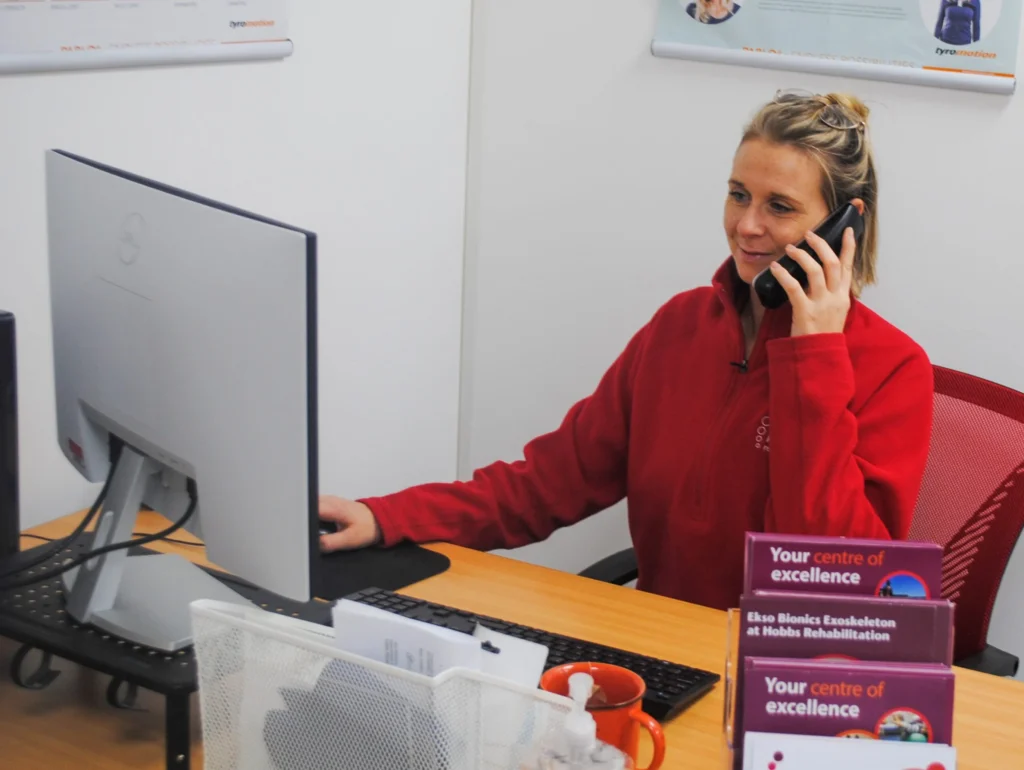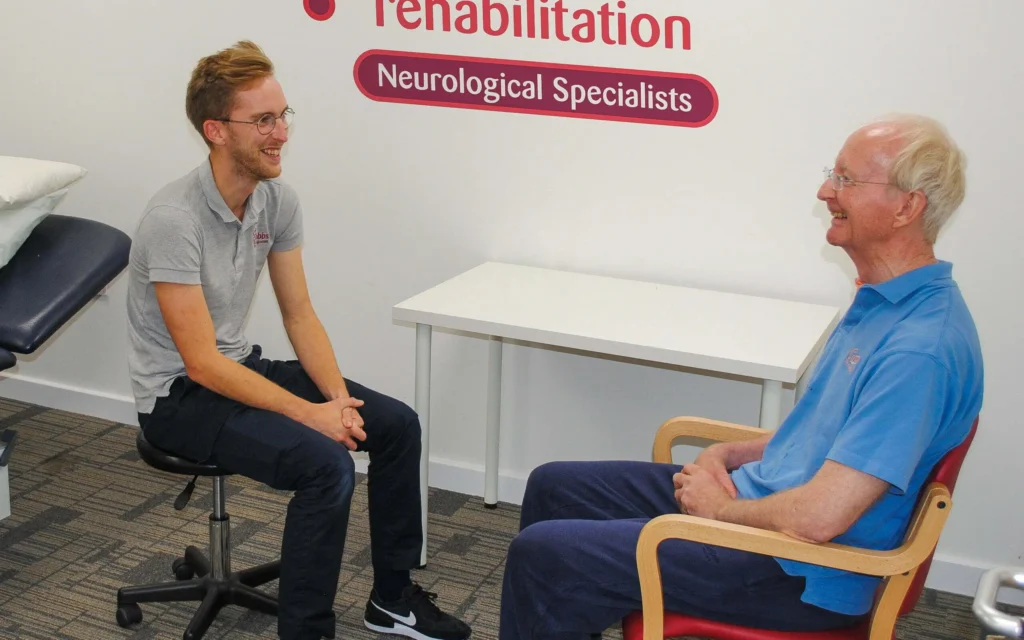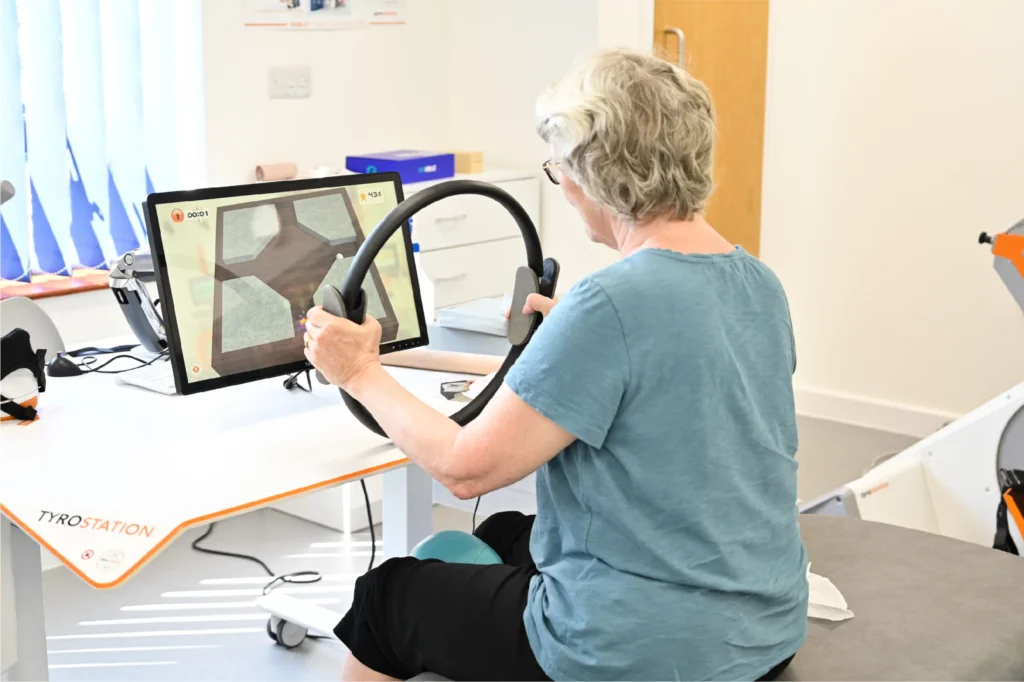Our speech and language therapists assess, diagnose and treat speech, language, communication, voice and swallowing difficulties. Together, with our patients, we help identify goals and priorities to make communication and swallowing easier for you. Our therapists have experience working in the fields of stroke rehabilitation, acquired brain injury and progressive neurological conditions.
Hobbs Rehabilitation combines the application of specialist hands-on techniques with the latest in neurotechnology. Neurotechnology can be a very useful adjunct to your speech and language rehabilitation programme and can significantly enhance the results you achieve by creating neuroplastic changes through high levels of repetition. Our neurological speech and language therapists formulate and implement individual treatment programmes based on your individual needs and goals and their comprehensive knowledge of evidence-based practice.
Our speech and language therapists assess, diagnose and treat speech, language, communication and swallowing difficulties in inpatient, outpatient and community settings.
Our areas of expertise include:
Hobbs Rehabilitation has communication courses (language groups or speech groups), where you have the opportunity to meet other people with similar communication challenges to yourself. Our speech groups are useful for people with Parkinson’s, and our language groups can benefit people living with Aphasia after a stroke or brain injury. The group setting is a useful way for you to work on your communication therapy goals in a more functional environment. We can see you either face-to-face at our clinic or in the community, or over a video call. Teletherapy was always part of our service, even before the pandemic. Communication partner training is also a big part of our work as speech and language therapists. We can provide tailored training to your conversation partners, which is particularly useful if you have Aphasia and need to have your conversation facilitated in just the right way.
We assess, diagnose and treat speech, language, communication and swallowing difficulties. We consider each patient to help identify specific needs, set therapy goals and create a tailor-made treatment programme.
Our Hobbs Rehabilitation speech therapists will ask you and your partner, family or carer about your communication or swallowing difficulties and how they first started, and how they have changed over time. Some people’s communication and swallowing difficulties worsen and some get better gradually, and your treating therapists will talk about this in the sessions.
If you come to Hobbs Rehabilitation with a communication difficulty, your therapist will ask you to do some tasks so that we can see what you’re able to understand, say, write, or how your voice and speech muscles work.
If you come to us with a swallowing problem, we will watch you eat some food and have a drink and work out why you have the difficulties and where along the swallowing journey the problem is occurring.
Once our speech and language therapists work out where the difficulties are, whether it’s communication or swallowing, we will work with you to identify your goals – what you want to be able to do with therapy – and then we create a therapy programme for you.
Hobbs Rehabilitation Speech and Language Therapists are skilled to treat and help manage speech, language, communication, voice, eating, drinking, swallowing, and facial movements. Our Speech and Language therapy treatment may include:
Speech
Language
Strategies/practice to help:
Communication
Swallowing
Training
Technology
Hobbs Rehabilitation offers speech & language therapy in a 1:1 and group setting as and where appropriate.
Intensive rehabilitation available at specific locations.
Hobbs Rehabilitation provides a multidisciplinary service to help ensure that every individual can reach their full potential. Discover our core multidisciplinary team or view all our therapies.

Enquire today about any of our services or packages

You will be contacted to determine your needs and assessment location

Your therapist will recommend the best course of treatment

Once you have booked you will be ready to start your treatment plan.
During the assessment, your therapist will discuss your clinical history and recommend the best treatment course, considering your needs and personal goals and refer you to our wider multidisciplinary team when required.
We offer speech and language therapy at all our centres and surrounding areas – offering our services in inpatient, outpatient and community settings – find your nearest centre.
Alternatively, call us on 01962 779796 to talk with our team or fill out our enquiry form on our contact page.
We accept self-referrals and referrals from Medico-Legal, health and social care professionals and the charity sector.
Explore a range of common questions about Speech and Language therapy, and see how you may benefit from an assessment.
We know it’s really important to involve your partner, family or carers in your rehabilitation journey, as communication is not a solo activity. We sometimes need to find out information about swallowing and communication difficulties from key people around you, and often need to hand over recommendations and home activity suggestions to your conversation partners. Sometimes we need to have just you in the room with us, so that we can find out exactly what you’re able to do and what you’re struggling with.
This very much depends on what the difficulty is. Some of our patients come once a week, some more frequently, and some less frequently. Research in rehabilitation tells us that the more intensive a therapy programme is, the better the outcome. We will always give you work to get on with at home when you’re not seeing us in the clinic.
This is a question all of our patients ask us, and the answer is a very difficult one to give, as it depends on so many things! We know that the more therapy we have, the better the outcomes, but this also depends on the nature of the condition, how flexible our brains can be, and how motivated we are. We will measure the change over time and be as honest as we can be about what our therapy is doing for you.
We regularly review the therapy goals to help us both stay on target and achieve outcomes, and if improvements aren’t happening we will look at ways to increase the therapy dosage, whether that’s giving you extra tasks to work on at home or other ways to work on the same goals. We may decide that the goals need to change. We may suggest getting involved in research or clinical trials to try alternative therapy approaches that are not immediately available in our clinic sessions. We always remain very open and honest with our patients about the treatment approaches and encourage you to do the same with us.
Yes! We love neurotechnology at Hobbs Rehabilitation and know it’s one way of increasing the amount of therapy you can do. Neurotechnology is the use of technological advances in a therapeutic setting, to achieve specific goals or increase intensity of therapy for better outcomes. Whether it’s beginning the process of swallowing again using flavoured air bubbles with Biozoon AIR, specific respiratory muscle strength training (RMST) with the EMST-150 or using apps/software to increase the dose of aphasia or dysarthria therapy using Tactus, CueSpeak or Beautiful Voice. There’s a whole world of neurotechnology within Speech and Language and your Speech and Language therapist will recommend to you the best devices, apps or websites that will help assist you in achieving your goals.
Don’t just take our word for it – take theirs